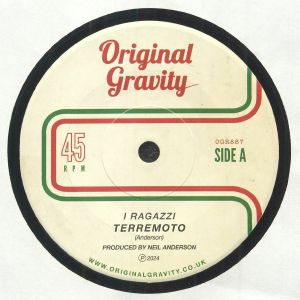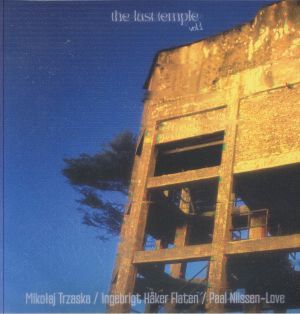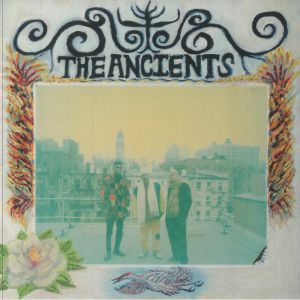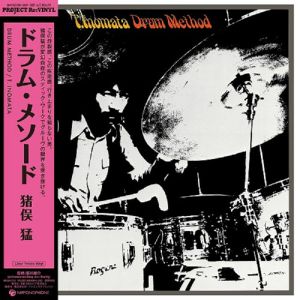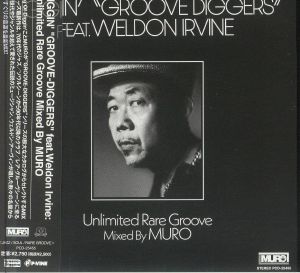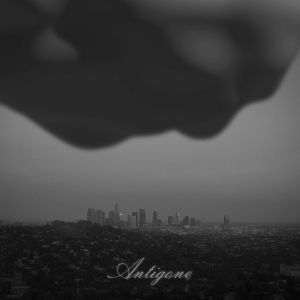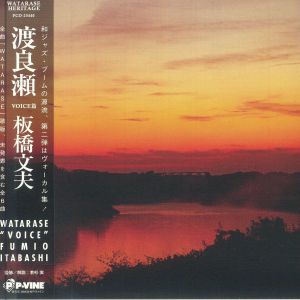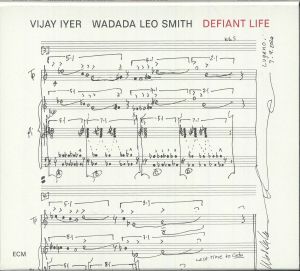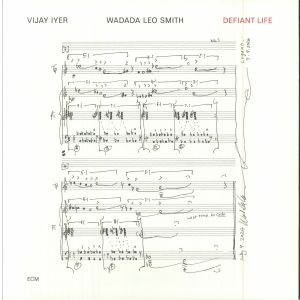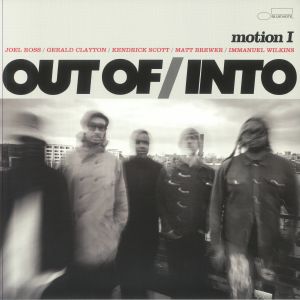Filter
Genre
Stock
Artist
Featured
Release Title
Price
Tags
Back catalogue: Funk Soul & Jazz
Juno's full catalogue of Funk Soul & Jazz
Singles
Review: Original Gravity strides into 2025 with this electrifying debut release from I Ragazzi. The limited 45 rpm has been crafted by the talented Neil Anderson and the title cut 'Terremoto' on the A-side bursts with funky, soulful energy that promises to keep floors moving and grooving all night long. It has big drums, crashing hits and driving Hammond organ stabs that never let up. On the flip, things get a little more laid back with 'Via Appia' which is led by more great organs, this time with swirling horn sounds and an inviting rhythm.
… Read moreIntérprete: Craig Charles Funk And Soul
in stock $13.73
The Last Temple Vol 1 (lathe cut 9")
Cat: SIT 143. Rel: 30 Jan 25
in stock $19.49
Álbumes
The Ancients (2xLP)
Cat: ZORN 112. Rel: 13 Feb 25
Review: The debut recording from The Ancients, an intergenerational trio featuring Isaiah Collier, William Hooker and William Parker initially formed to play Milford Graves' Mind Body Deal exhibition at the Institute of Contemporary Art in Los Angeles. This double LP captures the raw energy and improvisational brilliance of their live performances, showcasing the enduring legacy of free jazz. Collier's tenor saxophone soars and wails, drawing on influences from John Coltrane to Charles Gayle, while grounding his explorations in a deep understanding of structure and form. Hooker's drumming is a force of nature, a whirlwind of polyrhythms and explosive energy that pushes the music to its limits. And Parker, a true legend of the avant-garde, anchors the music with his virtuosic bass playing, creating a foundation for the trio's improvisational flights. The music is both a celebration of the rich history of free jazz and a bold exploration of new sonic territory. The Ancients tap into the spirit of their predecessors, channeling the energy of the Cecil Taylor Unit and the Ornette Coleman Trio, while forging their own unique path, the power of collective improvisation looming large throughout.
… Read moreIntérprete: Juno Recommends Jazz
in stock $38.97
Jazz At Berlin Philharmonic XV (180 gram vinyl LP + MP3 download code)
Cat: ACTLP 80041. Rel: 27 Mar 25
in stock $23.04
in stock $14.55
Review: The Ethiopian Ibex Band's 1976 album Stereo Instrumental Music is being re-released as a cornerstone of Ethiopian music. This record is credited with shaping the modern sound of Ethiopian music and the band's enduring influence can be felt in the works of legends like Aster Aweke, Girma Beyene and Mulatu Astatke. Created by Giovanni Rico and Selam Woldemariam, Stereo Instrumental Music is part of a significant legacy that challenges the idea of a "golden age" of Ethiopian music and highlights the constant evolution of the sound. The Ibex Band, later known as The Roha Band, has remained central to that and Ethiopia's wider scene.
… Read more in stock $32.92
Joyholic (reissue) (gatefold 2xLP + booklet with obi-strip)
Cat: 454736 6676457. Rel: 13 Nov 24
in stock $54.07
in stock $35.12
in stock $28.27
Remembrance (LP)
Cat: 377966 7. Rel: 27 Mar 25
in stock $28.55
Cat: 377968 3. Rel: 17 Apr 25
in stock $14.01
Home Cookin' (remastered) (UHQ-CD with obi-strip)
Cat: 589040 0. Rel: 28 Feb 25
in stock $17.56
Drum Method (reissue) (gatefold translucent yellow vinyl LP + insert with obi-strip)
Cat: HMJY 218. Rel: 29 Jan 25
Review: Takeshi Inomata's Drum Method reissue is jazz-rock at its fiercest, transforming a drum instructional into a relentless groove machine. Inomata's legendary, boundary-pushing stick work shines, leading Sound Limited through a heady mix of originals and covers like 'Runaway Child' and 'Smack Water Jack.' The album, filled with dizzying solos and Norio Maeda's standout arrangements, is a masterclass in rhythm and energy, showing Inomata's unstoppable drive to reshape the genre. This reissue is pure, high-octane funk and groove at its finest.
… Read more in stock $46.39
Vol 4: Jo Maka (CD)
Cat: FFLCD 92. Rel: 01 May 25
in stock $14.55
Apres La Maree Noire (CD)
Cat: FFLCD 93. Rel: 09 Apr 25
in stock $14.55
Diggin Groove Diggers: Best Of Weldon Irvine (Japanese Edition) (CD with obi-strip)
Cat: PCD 25455. Rel: 28 Jan 25
in stock $24.98
in stock $27.44
Blue City (remastered) (limited 180 gram vinyl LP with obi-strip)
Cat: MHJL 403. Rel: 12 Mar 25
Review: Isao Suzuki's follow-up to his breakthrough album captures the essence of Japanese jazz in the 1970s, a period where the traditional swing style was redefined with a unique, more restrained approach. This album features exceptional interplay between Suzuki and saxophonist Kazumi Watanabe, with an added depth from pianist Kunihiko Sugano and drummer Tetsujiroh Obara. Notably, bassist Nobuyoshi Ino joins on two tracks, including a stirring rendition of 'Body and Soul', bringing a fuller sound to the ensemble and highlighting Suzuki's innovative use of the cello within the small group context. The music, originally released in 1974, avoids the dated, overly rigid patterns of some American jazz of the time, instead opting for more fluid and expressive forms. Reissued now, this album stands as an essential masterpiece in the Japanese jazz canon, showcasing Suzuki's ability to create timeless, intricate and captivating jazz that continues to resonate with audiences worldwide.
… Read more in stock $43.65
Review: Eiko Ishibashi, best known for her acclaimed soundtrack work, returns to original composition with this album named in honour of the feminist-facing, heroine from ancient Greek tragedelian Sophocles' Oedipus Trilogy. It's a world of shimmering jazz harmonies, pulsating electronica and ghostly musique concrete, 'October' opening with a haunting, alluring melody and the disjointed rhythms of 'Coma' creating a sense of disorientation. 'Antigone', the centerpiece, builds to a powerful and unsettling climax, but there's more than chilling soundscapes as Ishibashi injects moments of surprising warmth and beauty, like the delicate interplay between acoustic and electronic elements in 'Nothing As'. Comparisons with her soundtrack work will be made, but - not unlike Antigone herself - this stands alone as a work of bravery and strength.
… Read more in stock $28.83
Review: In 1997, You Ishihara - a key figure in the of history of Japanese underground music, mainly thanks to his output as the leader of the band White Heaven - released this beauty. It's his debut solo album and in terms of the attention it received at the time, you might describe it as nothing more than a damp squib. Subsequently, it's only been availble on CD. However, for the first time on vinyl and to coincide with growing recognition that this is an album that's been unfairly lost in the cultural zeitgeist, it's now getting its flowers. Ishihara has a voice that lets those 60s melodies unfurl with the majesty of a flower opening its petals after a long winter. But he can also ramp it up to 13th Floor Elevator-esque psychedelic scuzz brilliance: 'Crevice' is all flailing hair, drum fills and beer spills. A lot of fun to balance out his Lou Reed-esque downtempo stuff.
… Read more in stock $39.51
Review: Watarase: Voice is a fantastic second release in this series following Fumio Itabashi's acclaimed Watarase: Echo. This new compilation serves up vocal versions of the masterpiece 'Watarase' featuring a range of artists including jazz vocalist Shigeo Maruyama, Korean folk singer Lee Jung Mi and Japanese vocalist Yuki Kaneko. The album focuses on previously unreleased tracks and showcases the global influence of the original and also includes the long-awaited complete version of 'Symphonic Poem 'Watarase,'" a key piece in the story of this beloved work. This is a great testament to 40 years of history and the enduring legacy of Itabashi's jazz artistry.
… Read more in stock $36.22
in stock $23.33
Review: Ysla, the latest album by Swiss-Polish-Japanese singer, composer and improviser Yumi Ito, is a breathtaking journey into the depths of personal storytelling and expansive, genre-blending soundscapes. Moving between art-pop, jazz and neoclassical, the album dives into themes of solitude, renewal and the end of worlds, beautifully woven with nature, psychology and societal reflections. For the first time, Ito recorded all piano parts herself, layering her vocals with remarkable grace over intricate compositions. In these seven original pieces, Ito has refined her vocal improvisation into a universal language that resonates effortlessly, transcending linguistic borders. Her voice glides seamlessly through varying rhythms and keys. Supporting her are Kuba Dworak on double bass and Iago Fernandez on drums, creating a fluid, versatile rhythm section that explores vast musical terrains. With contributions from guests like Chris Hyson on synths and Szymon Mika on guitar, Ysla feels both intimate and grand. Recorded with Daniel Dettwiler at Studio Idee und Klang on the legendary mixing console used by Queen and Supertramp, the album is a resonant island of artistryiundaunted, timeless and surrounded by vast oceans of sound. Ysla is Ito's boldest, most profound work yet.
… Read more in stock $20.86
Tide/Tied ("into the water" blue swirl vinyl LP with obi-strip)
Cat: LPTSR 284C. Rel: 09 May 25
in stock $29.63
in stock $15.36
Review: The second album from Vijay Iyer and Wadada Leo Smith on ECM is a meditation on resilience, sorrow and the human condition. Across four expansive tracks on Defiant Life, Iyer's piano and Fender Rhodes intertwine with Smith's haunting trumpet to create a soundscape that's both urgent and serene. From the solemn depth of 'Sumud' to the shimmering melancholy of 'Floating River Requiem' and the radiant close of 'Procession: Defiant Life' notions of suffering, resistance and hope are explored. The record was recorded in Lugano and produced by Manfred Eicher. It's a deeply reflective work of emotional and spiritual resonance.
… Read moreIntérprete: Juno Recommends Jazz
in stock $24.70
Review: This release feels like a collision of worlds, where abstract textures and rhythmic intricacies are forced into a dialogue with more accessible forms of electronic music. The opening track sets a tone of strange, mysterious propulsion, yet never fully gives in to any familiar conventions. Instead, it hints at a narrative unfoldingia journey, almost, where sound and intention coalesce but never fully resolve. It's a slow burn that rewards those who stick around, offering complex layers that reveal themselves gradually. Far from merely experimental, it finds a rare balance between artifice and soul, making each sonic twist feel purposeful and immersive.
… Read more in stock $28.54
Oasis (LP + insert)
Cat: AAR 333. Rel: 27 Mar 25
in stock $35.95

 USD
USD





